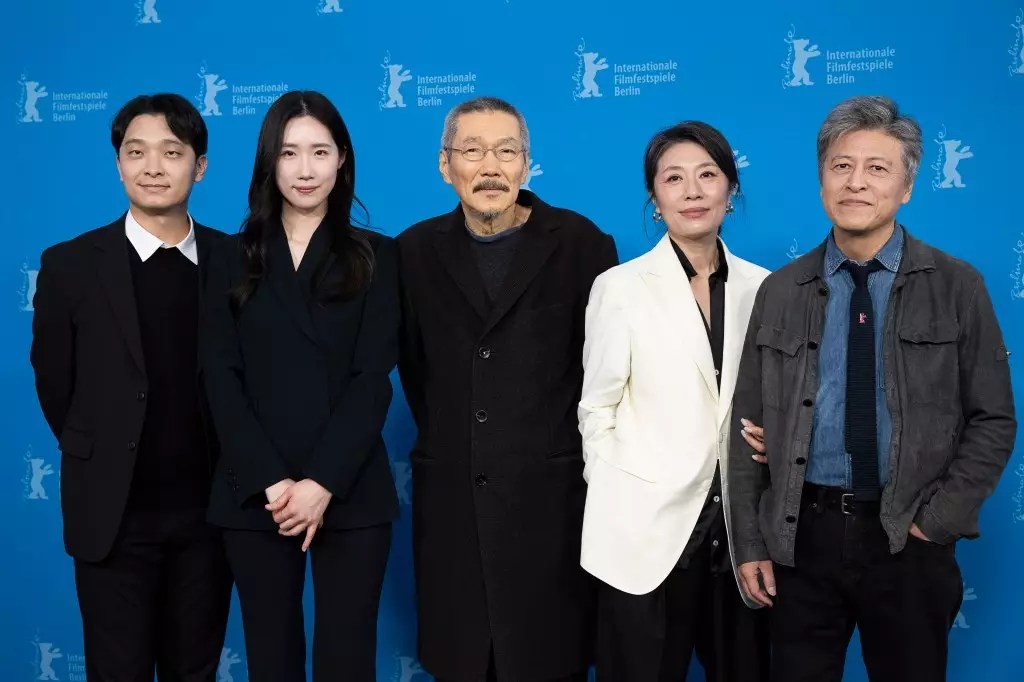Over the past three decades, Kwon Hae-hyo has carved out a significant niche for himself in the Korean film industry. With a career stretching over 30 years, he has not only witnessed the transformation of Korean cinema into a globally recognized cultural powerhouse but has also played a vital role in its evolution. Kwon’s collaborations with influential directors, particularly his longstanding partnership with Hong Sang-soo in 12 films, highlight not only his versatility but also the unique attributes that make the Korean film landscape compelling. This fruitful alliance has provided Kwon with an array of rich characters that have contributed to his status as a celebrated veteran actor.
The uniqueness of Kwon’s on-screen presence stems from his ability to adapt and evolve, a skill that is essential in an industry characterized by rapid change. Each role he has embodied serves as a testament to his dedication and understanding of the craft, particularly in a cinematic environment that values both storytelling and emotion.
One of the most fascinating aspects of Kwon Hae-hyo’s acting journey is his engagement with Hong Sang-soo’s distinctive filmmaking style. Unlike conventional cinematic approaches, where actors often receive scripts well in advance, Kwon credits Hong with a more spontaneous form of storytelling. This technique allows Kwon, and other actors, to embrace the unknown elements of their roles. According to Kwon, “When I film my scenes, I don’t know how it’s going to turn out.” This unpredictability transforms each scene into an organic experience, allowing for genuine moments of connection and understanding.
In his latest film, “What Does That Nature Say to You,” Kwon portrays a father navigating an unexpectedly poignant day spent with his daughter’s boyfriend. They delve into the intricacies of relationships and familial bonds, all while Kwon’s character is experiencing his own transformations. This direct engagement with the filmmaking process affords Kwon a distinct freedom as an actor and pushes him closer to an authentic representation of life.
Interestingly, despite the apparent spontaneity in Hong Sang-soo’s filmmaking, Kwon emphasizes that this does not translate into improvisation or ad-libbing during filming. With almost negligible instances of ad-libbed lines across Hong’s films, Kwon notes, “Out of all 30 films that he has made, if you put together all the lines that came from improvisation, the total will be probably only less than a minute.” This precision highlights the deliberate nature of Hong’s artistry, where capturing a moment requires actors to internalize dialogues deeply, regardless of the long takes that Hong is renowned for.
This meticulous approach to scripting and performance aligns with the philosophy that underpins Kwon’s sustained tenure in the industry. Unlike many who often feel the pressure before performing emotionally charged scenes, Kwon finds a liberating strength in the immediacy of Hong’s style, reaffirms his commitment to capture the emotions that define human experience.
Kwon’s insights extend beyond his experiences in cinema, touching on the social responsibilities of actors and performers. He believes that engaging with non-profit organizations and social causes has served as a grounding element throughout his long career. “I feel like I am living not only as an actor but as a person in society,” Kwon states, emphasizing the importance of a holistic approach to life in the industry. This connection to societal issues allows Kwon to offer authenticity to his performances, ensuring that he resonates with audiences on a deeper level.
As Kwon reflects on his journey and the expansive growth of Korean cinema post-authoritarianism, he recognizes the profound influence that socio-political changes have had on artistic expression. He states, “It’s important that movies are not about dreams or unrealistic lives; it has to be about society and reality.” This grounding principle not only shapes his understanding of film’s role in modern society but also illustrates the evolution of Korean cinema as it bridges local narratives with global perspectives.
Lasting Influence and Future Aspirations
In an industry that constantly transforms, Kwon Hae-hyo represents stability and ingenuity. He embodies the essential qualities of humility and authenticity, traits that enable him to stand out in a saturated environment. As he continues to navigate his career, Kwon remains focused on the essence of being true to oneself rather than being different from others. This inward perspective has allowed him to maintain a vibrant acting career and to embrace whatever new narratives come his way.
Kwon’s reflections serve as a reminder of the interplay between cinema and society, encouraging a future generation of actors to embrace authenticity in their performances. His journey thus far highlights the power of collaboration, the importance of spontaneity within structure, and the role of social consciousness in shaping not just one’s career but also the wider cinematic landscape. Through Kwon Hae-hyo’s lens, we see not just the evolution of an actor but also an artist committed to representing and understanding the truth of the human experience.


Leave a Reply